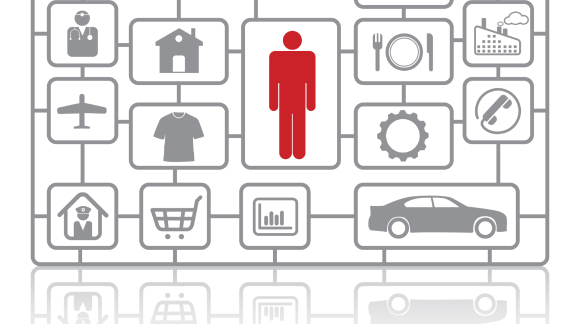Different Needs for the Different Stages of Our Lives

The Life Cycle
The life cycle begins with infancy and develops into childhood. At approximately 20 years of age, we celebrate adulthood and conclude our lives as senior citizens. These four basic stages can be broken up into hundreds more, all equally important to the development of our “self.”
Thomas Armstrong, executive director of the American Institute for Learning and Human Development, teaches the 12 stages of life:
- Pre-Birth
- Birth
- Infancy
- Early Childhood
- Middle Childhood
- Late Childhood
- Adolescence
- Early Adulthood
- Midlife
- Mature Adulthood
- Late Adulthood
- Death
During each of these stages, we have different needs, goals and experiences, but they all contribute equally to the human life cycle.
Infancy
Defining relationships, observing their surroundings and developing motor control are some of the basic skills learned as a baby. Dependent on caregivers, infancy brings a series of new developments at a fast pace.
Childhood
In this stage of life we define the inner subjective self and develop technical and social skills that we employ later in our adult lives. Children are creative and willing to imagine and pretend. From their caregivers they need the ability to explore. This can be achieved by allowing children to try new activities, like after-school sports, learning an instrument or summer camp.
Adulthood
This is a period in life when you begin accumulating responsibilities. It is the beginning of the need to make our mark on the world. Great growth is experienced in adulthood as families are created and identities are formed through success at home and in the workplace.
In adulthood, one might experience:
- New desires and life goals (different from goals in previous stages of life)
- A change in health
- Growth in family
- Greater spiritual understanding
- Withdrawal from society/reality (midlife crisis)
Elder
As we age into senior citizens, we gain a heightened sense that the last stage of life is approaching. For many this is a time to slow down and reflect. Aging adults need to feel important and should remain in good company with activities that keep them engaged.
The Hierarchy of Needs
Abraham Maslow established the hierarchy of human needs. It is widely believed that there is an order of human needs. The most basic needs are biological. Once biological needs are met, a person moves to the next level.
Maslow’s hierarchy of needs includes:
- Biological – These are the needs that we have to maintain life, including clean air, water, food, shelter and sleep.
- Safety – Basic protection from the elements, understanding that there is a set of community laws that keep your neighborhood stable and secure.
- Belongingness – The desire to be needed in the forms of intimacy and friendship.
- Esteem – Earning success, independence, and self-respect.
- Self-Actualization – Seeking personal growth and developing a greater understanding for your place in the world.
Regardless of the stage of life we are in, these represent the basic needs of all human beings. In every stage, from infancy to death, there are different growth milestones that we should celebrate. As your needs and the needs of those around you fluctuate, enjoy the progression from one stage to the next. After all, it only happens once.
Additional Resources
- The Twelve Stages of the Human Life Cycle, by American Institute for Learning and Human development
- Nutrition for the Different Stages of life, by nutrition.gov/life-stages
- Financial Planning for Different Stages of Your Life Cycle, by Jitendra Solanki
- Hydration in infancy and Childhood, by h4hinitiative.com
- Hydration and the Elderly, by h4hinitiative.com
- The 5 Career Stages, by Dr. Tom Denham
Videos
- NS&I-Planning for Different Life Stages, by Nsandi
- Make Meaningful Changes in Your Life, by doctoroz.com
Education
- LIFE STAGES – Utah State University, by Steven Mintz
Books
- The Human Odyssey: Navigating the Twelve Stages of Life, by Thomas Armstrong PhD
- The Life Stages of a Man’s Life, by E. James Wilder
- Stages of a Woman’s Life, by Dr. James C. Dobson & Jean Lush
Apps
- The Chalene Show/Motivation/Leadership and Life Coaching, by Chalene Johnson, available on iTunes for free
